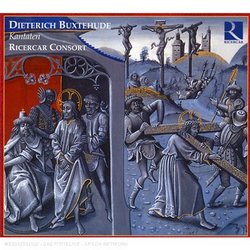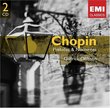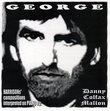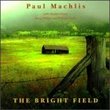| All Artists: Dietrich Buxtehude, Henri Ledroit, Ricercar Consort, Greta de Reyghere, Agnès Mellon, Guy de Mey Title: Buxtehude: Kantaten Members Wishing: 0 Total Copies: 0 Label: Ricercar Original Release Date: 1/1/2007 Re-Release Date: 11/13/2007 Genres: Pop, Classical Styles: Vocal Pop, Opera & Classical Vocal, Historical Periods, Baroque (c.1600-1750) Number of Discs: 1 SwapaCD Credits: 1 UPC: 5400439002524 |
Search - Dietrich Buxtehude, Henri Ledroit, Ricercar Consort :: Buxtehude: Kantaten
 | Dietrich Buxtehude, Henri Ledroit, Ricercar Consort Buxtehude: Kantaten Genres: Pop, Classical
In 1987, Ricercar released a first recording devoted to Buxtehude's cantatas on the occasion of the 350th anniversary of the composer's birth, following this with other works of genius of Lübeck in their compilation o... more » |
Larger Image |
CD Details
Synopsis
Album Description
In 1987, Ricercar released a first recording devoted to Buxtehude's cantatas on the occasion of the 350th anniversary of the composer's birth, following this with other works of genius of Lübeck in their compilation of German Baroque Cantatas. To mark the tercentenary of Buxtehude's death, Ricercar now presents a re-release of the recording of the cantatas, providing a full sample of his various compositional styles that, inherited from his teacher Tunder, prefigured the compositions of J.S. Bach's time. Set to both Latin and German texts, these geistliche Konzerte are remarkable not only for their emotional and theatrical writing for the voice, but also for the close linking of the instrumental parts of the vocal lines. Dieterich Buxtehude (ca. 1637-1707) was a Danish-born organist and composer of the German Baroque. Regarded at one time as mostly an influence on later composers, Buxtehude has risen steadily in modern estimation and is now considered the most important German composer between Schütz and Bach.
Similar CDs
| Paul Machlis Bright Field Genres: Folk, International Music, New Age, Pop Label: Culburnie Records | |
| Sanctuary Series Reflection Genres: Pop, Christian & Gospel, Gospel Label: Maranatha | |

 Track Listings (7) - Disc #1
Track Listings (7) - Disc #1


